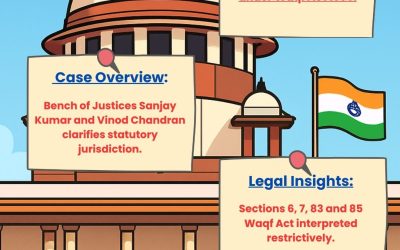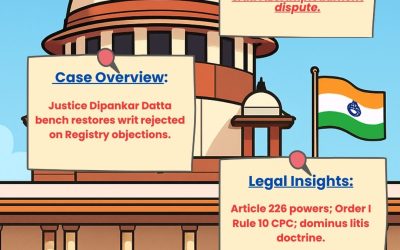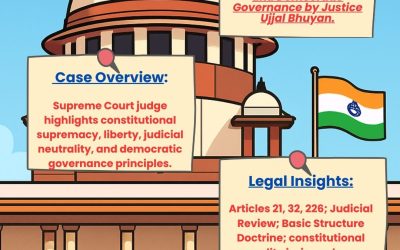
Headline
The Supreme Court of India ruled that no deemed sanction U/S 197 CrPC and quashed the case against Public Servant, by stating that courts cannot assume sanction if authority fails to act within a given time.
Summary
The Supreme Court of India, in the case of Suneeti Toteja v. State of U.P. & Another, quashed criminal proceedings against a public servant due to the absence of prior sanction. The Bench of Justices BV Nagarathna and Satish Chandra Sharma ruled that Section 197 of Criminal Procedure Code (CrPC) does not provide for “deemed sanction” if approval is delayed.
Key Facts
- Case Name: Suneeti Toteja v. State of U.P. & Another
- Judges Name: Justice BV Nagarathna and Justice Satish Chandra Sharma
- A public servant was prosecuted without prior sanction.
- The Supreme Court declined the argument of the prosecution,that delay in sanction implied deemed approval.
Legal Insights
- The Court explained that Section 197 of Criminal Procedure Code(CrPC) does not acknowledge deemed sanction.
- The prosecution quoted the cases of Vineet Narain and Subramanian Swamy do not support this concept.
- Unlike Criminal Procedure Code, the new Bhartiya Nagrik Suraksha Sanhita, 2023 (BNSS) introduces deemed sanction if approval is not given within 120 days.
Impact
This ruling of the Supreme Court upholds procedural protections for public servants, for safeguard from wrongful prosecution without valid sanction.
Why It Matters
The judgment of the Supreme Court focuses on the principle that courts cannot read into statutes what is not expressly given by law.
Source
- Legal Glossary- Sanction
- Supreme Court of India







